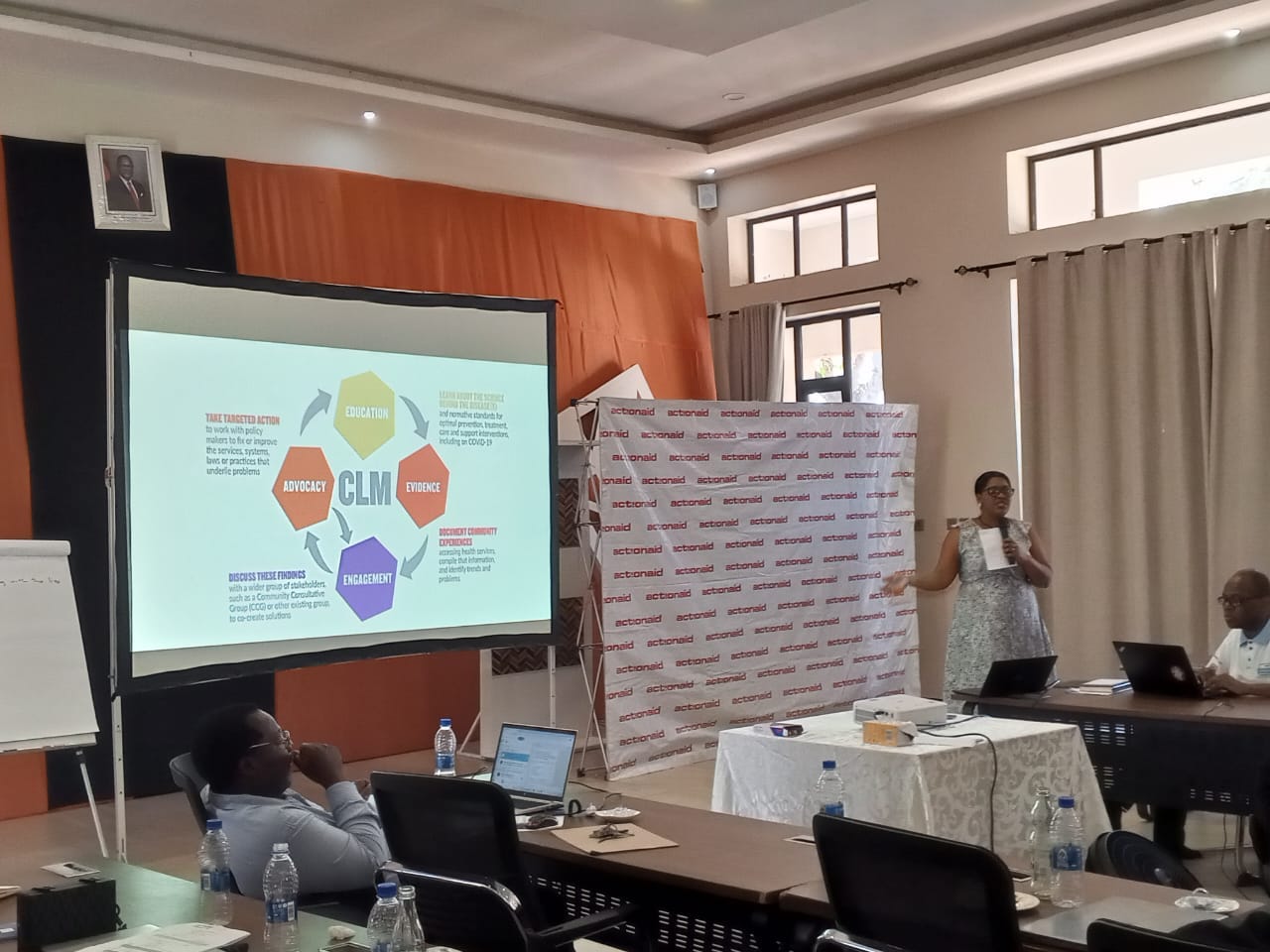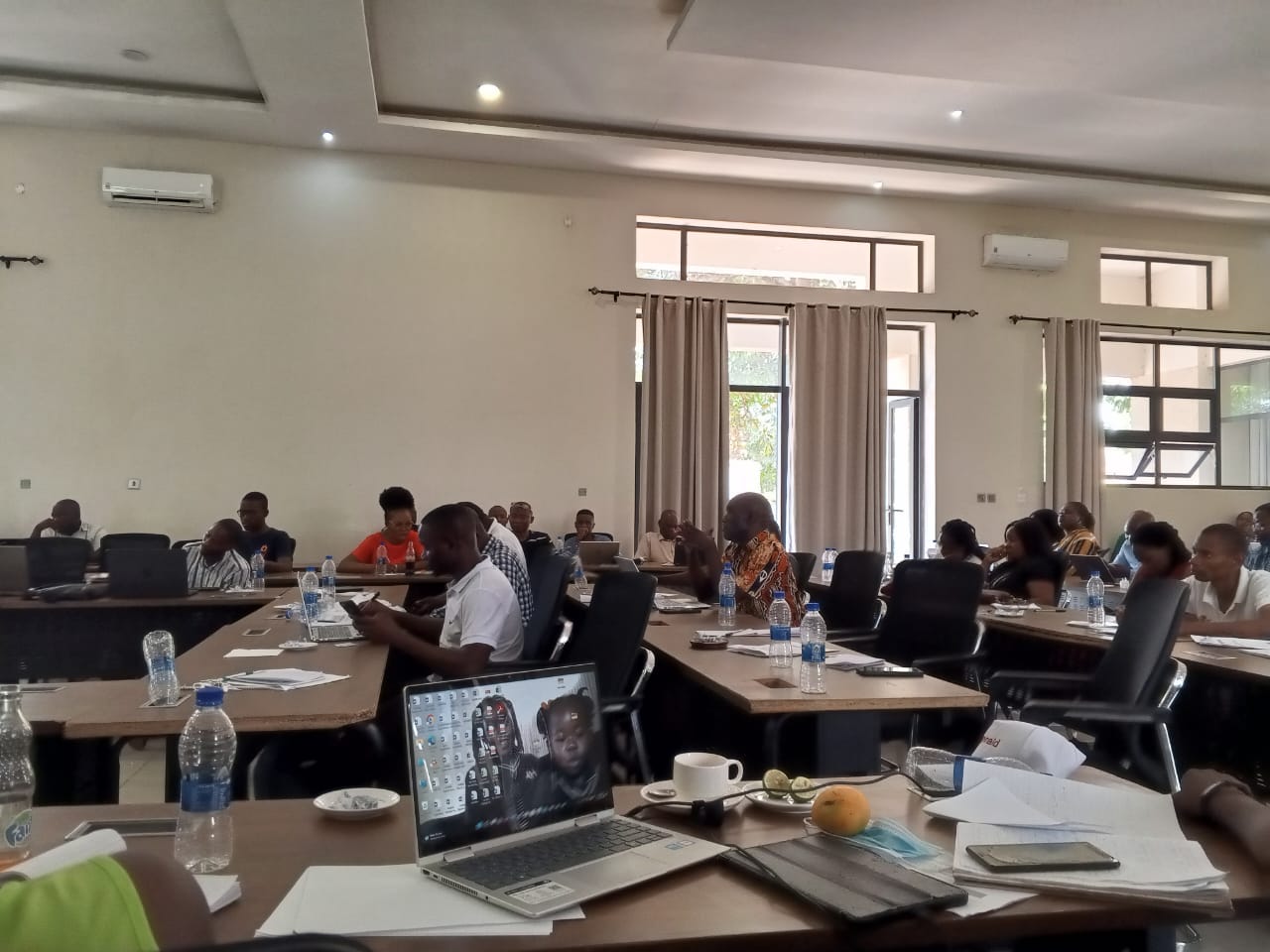Facilitator Carol Kassam Champions Community-Led Monitoring in Malawi
Carol Kassam explained that Malawian CLM goes beyond data collection and seeks to use the data to advocate for improved services and resources.
SALIMA, Malawi—One of the facilitators at a three-day "trainer of trainers" Community-Led Monitoring (CLM) workshop emphasised that CLM is about taking action to create positive change, writes Winston Mwale.
The COPPER CLM (Communities in Pandemic Preparedness and Response—Community-Led Monitoring) initiative, funded by the Global Fund through the Ministry of Health's Project Implementation Unit, focuses on enhancing community engagement in health monitoring.
Carol Kassam explained that Malawian CLM goes beyond data collection and seeks to use the data to advocate for improved services and resources.
"Those are not just implementing CLM just to collect data. I think the issue of data was already mentioned in this presentation: CLM collects data, analyses it, and then uses that evidence to engage. So, you can see the action and the reason, the focus to do the action, to see the change. When we are doing CLM, we want to see something happening; we want to see the changes," Kassam stated.
This action-oriented approach includes advocating for the availability of necessary medications and promoting updated treatment approaches.
For instance, Kassam cited an example related to routine viral load testing in HIV care.
She noted that while Zimbabwe had transitioned to using dry blood spot samples for this testing, Malawi was still utilising the older dried blood cell method. CLM efforts can help advocate for the adoption of newer and more effective healthcare technologies and practices.
While acknowledging that CLM might be perceived as a new concept, Kassam clarified that it has been present in Malawi since 2018.
She explained that the current workshop focuses on a well-structured approach to CLM, but emphasised that groups have been implementing CLM for years, albeit at different levels.
This variation, Kassam pointed out, stemmed from the fact that some groups have transitioned to newer, more structured approaches while others continue to operate within the frameworks they established in 2018.
Kassam went on to outline the four key principles that guide CLM in Malawi:
Community Leadership and Ownership: CLM in Malawi is driven by civil society organizations and communities, going beyond grassroots structures. It emphasizes that CLM is led by the people's society and the community rather than solely focusing on the HIV response.
Focus on Action and Accountability: CLM seeks to analyze collected data to engage service providers and improve the quality of services.
Collaboration: CLM initiatives in Malawi target diverse populations and stakeholders, ensuring that various perspectives are considered.
Integrating Magic and Routine Data Collection: Kassam stressed the importance of collecting both qualitative and quantitative data to support informed decision-making.
The workshop provided a platform for stakeholders to discuss challenges and opportunities for enhancing CLM in Malawi.
During feedback sessions on Tuesday, participants identified issues such as limited resources in rural health facilities and communication gaps between community health workers and district health offices.
Representatives from institutions like the Public Health Institute of Malawi and the Ministry of Health outlined plans to address these concerns.
The workshop's agenda included a range of topics related to pandemic preparedness and response.
These included the intersection of pandemic preparedness and response (PPR) with issues like antimicrobial resistance, HIV, TB, malaria, and preventive services.
Participants also received training on budget advocacy, turning CLM data into advocacy for positive change, and applying their knowledge to planning tools and tasks.
The workshop will conclude on Thursday with practical applications of monitoring tools and evaluation sessions.
The initiative, which will run until December 2025, is expected to enhance Malawi's capacity to prevent, prepare for, and respond to future pandemics.





